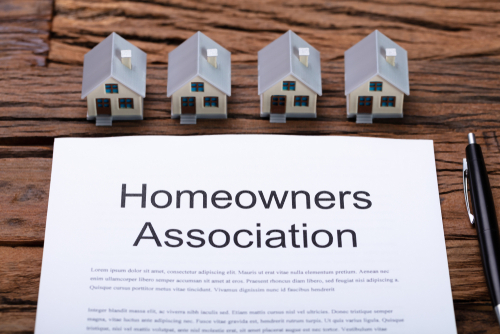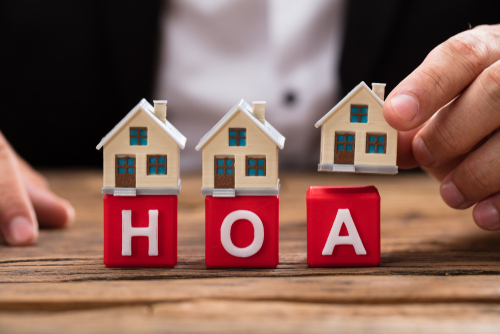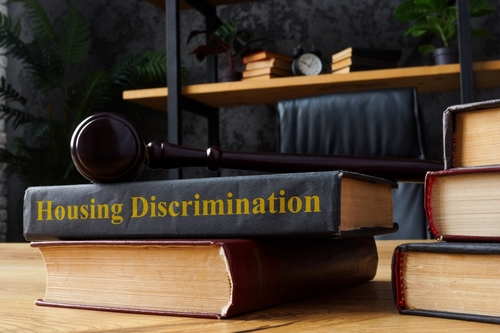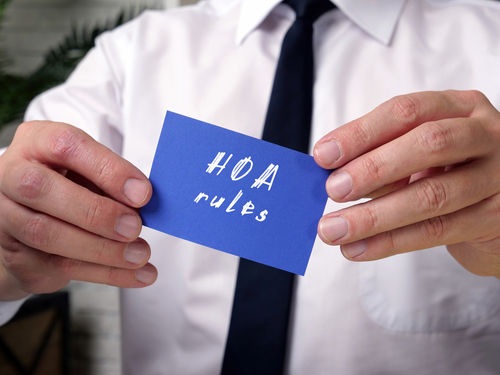Homeowner’s associations have several rules and regulations that both board members and homeowners must follow. It’s important for all parties involved to understand these rules and comply with them while living in an HOA community. Today, we’ll go over who regulates HOA laws, common laws for community members to follow, and tips for enforcing HOA laws and regulations.

Contents of This Article:
- Who Regulates HOA Laws and Regulations?
- Common HOA Laws in Philadelphia
- Federal Laws for HOAs
- Standard Rules for HOA Members
- Tips for Enforcing HOA Laws and Regulations
- Why HOA Rule Enforcement Is Necessary
Who Regulates HOA Laws and Regulations?
Homeowner’s associations (HOAs) are typically regulated at the state level in the United States. Each state has its laws and regulations governing HOAs, which can vary significantly from one state to another. Additionally, local municipalities may have some authority over certain aspects of HOAs.

For instance, in Pennsylvania, HOAs are regulated by the Uniformed Planned Community Act (UPCA). This act applies to all planned communities with more than 12 units and creates responsibilities for HOAs to oversee these communities.
That said, HOAs typically have documents that regulate themselves. While every HOA differs, most have their own governing documents, including Articles of Incorporation, Bylaws, Declaration of Covenants, Conditions, and Restrictions (CC&Rs), and other rules. Additionally, all HOAs are subject to applicable federal laws, which we’ll discuss later in this article.
Board members, homeowners, and Philadelphia HOA managers must understand which HOA laws to follow, common rules for homeowners, and tips for enforcing rules and regulations. Read along to learn more about each topic.
Common HOA Laws in Philadelphia
Understanding state HOA laws and regulations is crucial for property managers, board members, and executives to ensure compliance and efficiency. So, let’s take a look at some of the most prevalent HOA laws in Pennsylvania.
Uniformed Planned Community Act (UPCA)
The Uniformed Planned Community Act, located in Title 68 of Chapters 51 through 54 of the Pennsylvania General Assembly, governs HOAs in Pennsylvania. It establishes HOA responsibilities for all homeowners associations while managing these neighborhoods.
Pennsylvania Real Estate Cooperative Act
The Pennsylvania Real Estate Cooperative Act provides a legal framework for the operation of real estate cooperatives in the state of Pennsylvania. It gives a general insight into the purpose of HOA organizations.
Pennsylvania Human Relations Act
The Pennsylvania Human Relations Act was passed to protect residents from unfair treatment regarding public accommodation, employment, and housing. According to the Act, no planned community can discriminate against a homeowner or potential homeowner. Housing discrimination based on the following factors is illegal.

- Ancestry
- Race
- Religion
- National origin
- Familial status
- Disability
- Color
- Sex
- Age
While the Americans with Disabilities Act (ADA) and Fair Housing Act (FHA) protect residents at the federal level, the Pennsylvania Human Relations Act provides protection at the state level.
Pennsylvania Nonprofit Corporations Act
The Pennsylvania Nonprofit Corporations Act regulates the corporate structure and practices of associations that are established as nonprofit corporations. To determine if an HOA is a nonprofit organization, you’ll want to go to the Pennsylvania Department of State.
Federal Laws for HOAs
Along with Pennsylvania state HOA laws, homeowner associations must also comply with applicable federal laws. These may include, but are not limited to, the following laws and acts.
- Americans with Disabilities Act of 1990
- Fair Housing Act
- Fair Debt Collection Practices Act
- Freedom to Display the American Flag Act
- Over-the-Air Reception Devices Rule
- United States Bankruptcy Code
- The Servicemembers Civil Relief Act
Following these federal laws is crucial for anyone running an HOA community. Understanding both state and federal laws ensures that the association operates within the legal framework at all levels.
Standard Rules for HOA Members
HOAs have several state and federal laws that are crucial for HOA members, board members, and executives to follow. However, there are several rules that HOA members or homeowners within an HOA community must follow as well. The HOA’s Board of Directors typically determines these rules. That said, a community’s specific set of rules varies depending on several factors, like location, size, and other attributes. However, here are some standard guidelines you’ll find almost everywhere.
- Architectural Guidelines- These rules dictate the appearance and modifications of homes within the HOA. For instance, they may limit exterior paint colors, types of fencing, and approval processes for additions or renovations.
- Maintenance and Landscaping- Homeowners are generally required to maintain their properties to certain standards. This includes keeping up with landscaping, proper exterior maintenance, and adherence to community-wide maintenance standards. Additionally, there may be rules or limits regarding exterior decorating during holidays.
- Use of Common Areas- There are usually guidelines on how residents can use shared spaces and amenities like public parks, pools, or clubhouses. These may include rules on reservations, guest access, and appropriate behavior in common areas.
- Parking Restrictions- There may be rules covering assigned parking spaces, restrictions on certain types of vehicles, and policies for visitor parking.
- Noise and Nuisance- Typically, there are restrictions on excessive noise, disruptive activities, and behaviors that could be considered a nuisance to neighbors. These rules aim to maintain a peaceful living environment.
Tips for Enforcing HOA Laws and Regulations
Enforcing HOA rules and covenants is a large responsibility of the Board of Directors. That said, the association must enforce all regulations fairly and consistently. However, associations can sometimes lose focus when enforcing HOA rules effectively. If that’s the case, it may help to enlist the services of an HOA management company. Here are some more tips for enforcing HOA rules and regulations.

- Issue a Warning
- Use Fines If Necessary
- Suspend Rights and Privileges
- Place a Lien
- Stay Consistent
- Hire HOA Management
Issue a Warning
Start with a warning for minor violations. This allows homeowners to correct the problem without facing immediate consequences. The warning should be in writing and include details of the specific violation. A warning is often enough to keep homeowners on their best behavior. After all, most first-time violations are honest mistakes.
Use Fines If Necessary
Fines can be an effective tool for more serious or repeated violations. First, ensure the process for imposing fines is clearly outlined in the HOA’s governing documents and complies with state and local laws.
Suspend Rights and Privileges
In certain situations, the HOA may have the authority to suspend certain flights of privileges of a homeowner. This may include limiting access to community amenities or services. However, it’s essential to check your state laws and governing documents to ensure the board is acting within its authority.
Place a Lien
If a homeowner fails to pay HOA fines or assessments, the HOA may place a lien on the property. This is a legal claim against the property and can lead to foreclosure if the debt remains unpaid for a certain amount of time. However, placing a lien doesn’t mean the fine gets paid. If the homeowner sells the property, the new owner may need to pay the lien as part of the purchase.
Stay Consistent
Consistency is key when enforcing HOA rules and regulations. It’s crucial to apply rules and enforcement actions uniformly to all homeowners to avoid discrimination claims. Additionally, fairness and consistency contribute to a more honest and transparent community environment.
Hire HOA Management
An HOA management company can help streamline administrative tasks, including enforcement. Professional management companies, like BMG, have experience in dealing with various issues and can provide valuable support to the HOA board.
Why HOA Rule Enforcement Is Necessary
Compliance and enforcement of HOA rules are necessary for several reasons. Without following the laws and rules, whether state or federal, an HOA’s peaceful and harmonious environment can decline rapidly. As such, it’s important for board members and homeowners to know which laws and rules to follow to ensure compliance.
Need More Advice? contact us today!
If you’re looking for someone to manage your HOA properties, look no further than Bay Property Management Group. Our team of qualified property managers can help you with all your homeowner’s association management needs. We offer a number of services, including prompt and effective communication, property inspections, vendor management, violation management, annual budget creation, and more. Contact BMG today to learn more about our Philadelphia HOA Management services!
